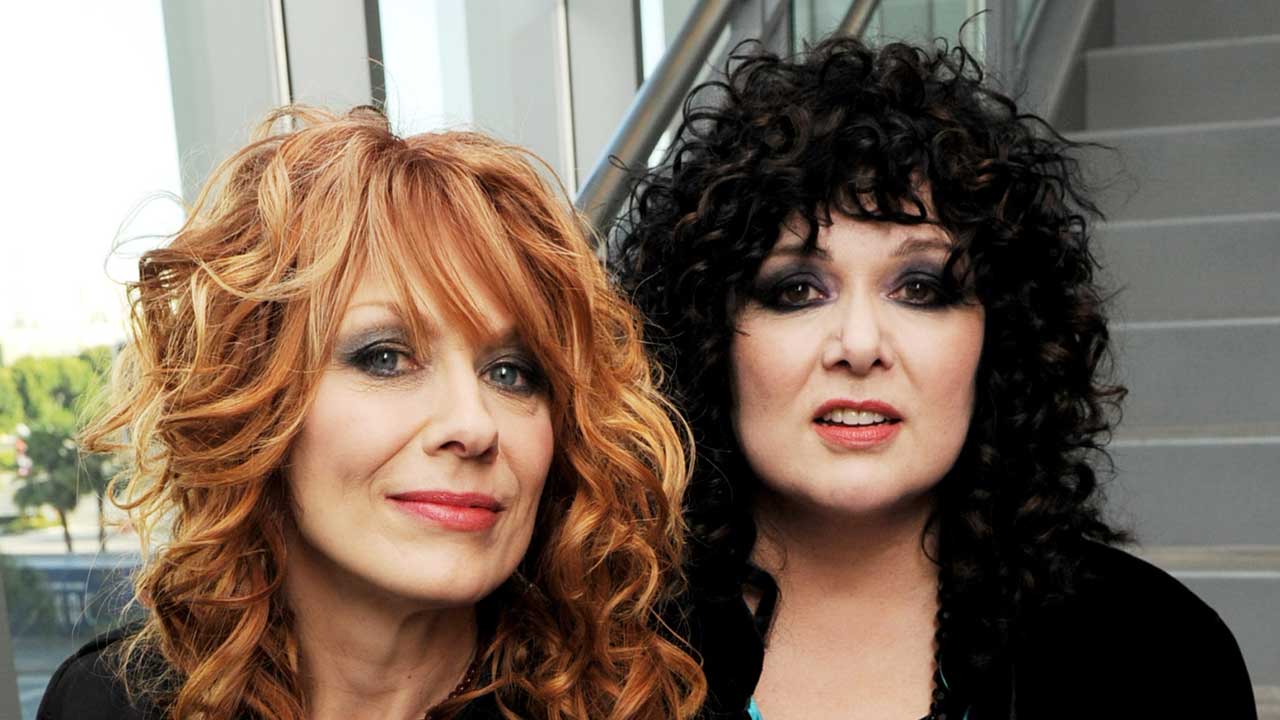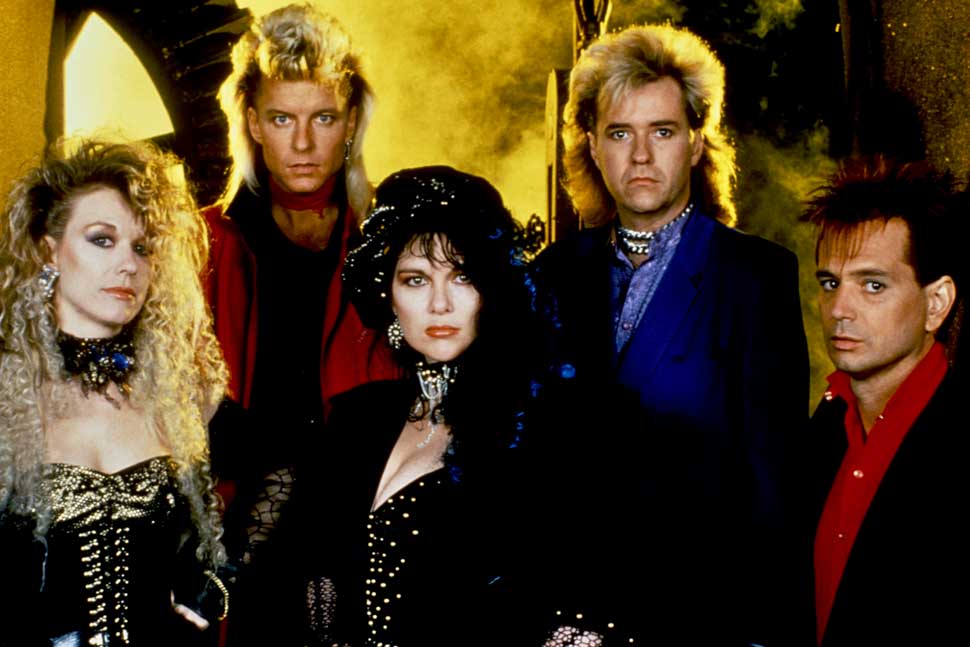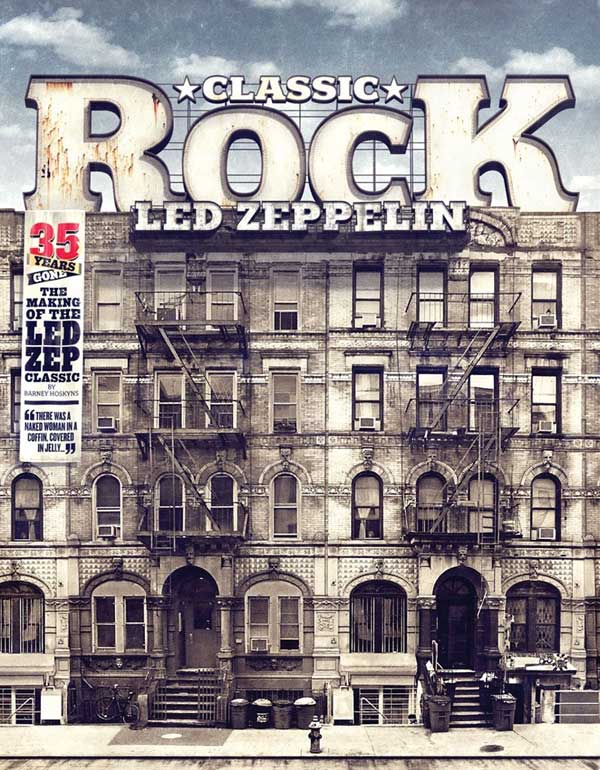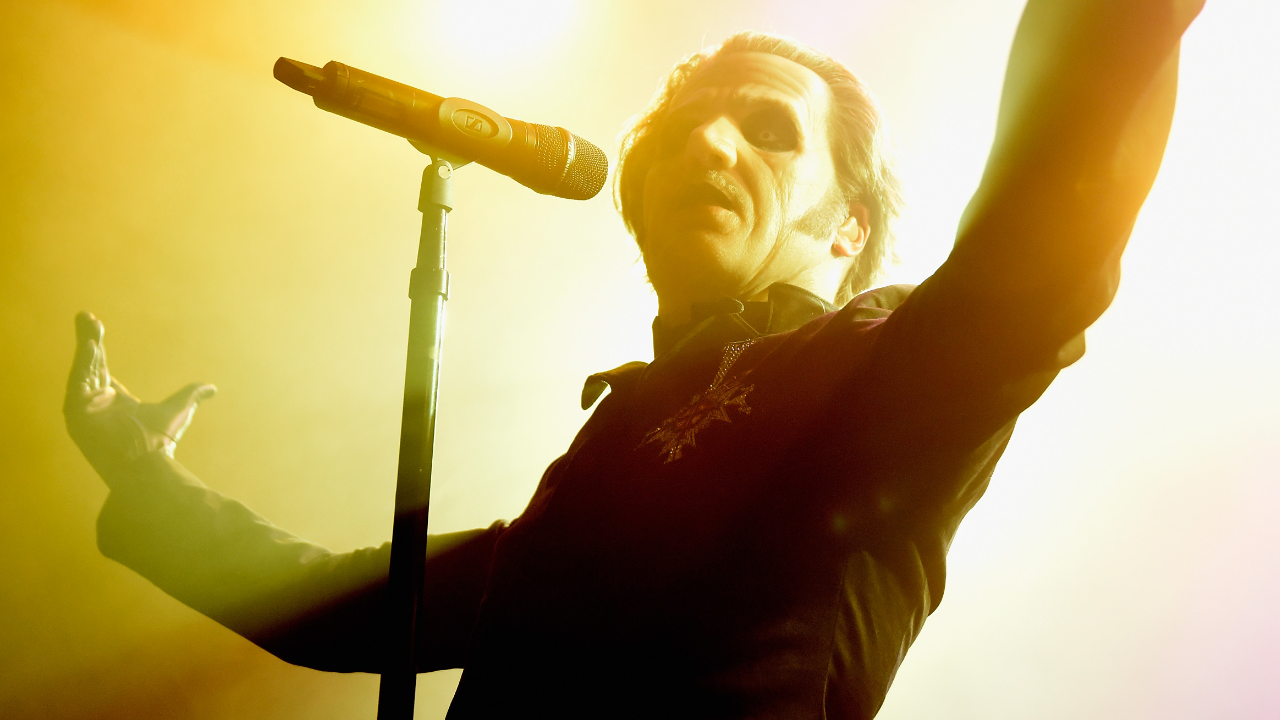"We got escorted out of town the next day because the big lawnmower went into the swimming pool": Grunge may have burst the big-hair bubble, but it saved Heart
The Wilson sisters look back on hit records, death threats and a career like no other

In 2010, Heart released Red Velvet Car, their first album to hit the US Top 20 in two decades. To mark the album's release, Classic Rock sat down with the band's Ann and Nancy Wilson to discuss their path from classic rockers to multi-platinum, MTV-friendly goliaths and beyond.
It was boredom that started it. You're in one of America's biggest bands, your album is at No.1, the tour seems endless - night after night the same in nameless, faceless hotels...
"We were bored after a show one night," chuckles Heart’s Ann Wilson with the benefit of more than two decades’ hindsight. “Our publicist at the time, who’s now the manager of Pearl Jam, well, the two of us broke into the hotel bar which was closed down for the night.
"We had a few drinks and then we plugged in the jukebox, turned it way up, just had a party in there. Real breaking and entering. And we could have really gotten in trouble big-time, because we were in some little town back east that was really pretty conventional and uptight. We left a lot of booze bottles around.”
Ann Wilson’s confession about her most ridiculous rock’n’roll moment doesn’t stop at that.
“We got escorted out of town the next day because things went on from there – the big lawnmower went into the swimming pool, filling the pool with oil. They were renovating the hotel and there were big rolls of brand-new carpeting which got shoved into the pool. Doors were knocked on and when people opened them they were sprayed with the fire extinguisher…”
It was the late 80s, and Heart (the band Wilson has led along with her guitarist younger sister Nancy since the mid-70s) were riding high on their reinvention from 70s folk rockers to polished, AOR megastars. Big ballads and even bigger hair was the order of the day. These Dreams and Alone were monster hits, the band’s videos were all over MTV. It all seemed a world away from their earlier success, driven by consummate acoustic-driven rock albums like 1976’s Dreamboat Annie and 77’s Little Queen.
Sign up below to get the latest from Classic Rock, plus exclusive special offers, direct to your inbox!

But after that second massive success the band’s fortunes faltered. The big-hair bubble burst, and it seemed that Heart were over. The Wilsons retreated to their native Seattle.
For all that grunge has been held responsible for slaying the OTT-ballad brigade, somehow the sisters seemed to escape its flannel-shirted wrath. Conversely, grunge actually proved to be their saviour.

“It saved us emotionally at the time,” guitarist Nancy Wilson explains. “We came back out of the 80s with our tails between our legs. We were one of those hair bands that were so uncool overnight.
“I can’t tell you how relieved we were to find that out after the eighties and we came back to Seattle, because guys like [Alice In Chains guitarist] Jerry Cantrell were there going: ‘Oh my god, you’re such an influence.’ I still well up when I remember him asking me how the beginning of Mistral Wind went. We were playing guitars at Ann’s house and just trying to find our community again in Seattle, and there it was, larger than we ever expected it to be.”
“We were really pretty surprised when we came down off of that eighties thing and we were embraced by those guys,” Ann continues. “I just figured, oh my god, now we’ve done it. We’d gone out on a worldwide level, had a few number ones and made a shitload of money."
"But we came back having made a Devil’s bargain, and in the grunge era that was the kiss of death – the notion of being inauthentic. Here in Seattle I think the musicians have a really hard time in that they’re saddled with their own idea about authenticity being the be-all and end-all. And we have it too – we have the Seattle musician curse as well as any of the other guys do…
“When we came back I was surprised that there were parties we got invited to, and everybody was like: ‘Come on, let’s jam.’ And all that eighties stuff that we were involved with just kinda melted away. Within a year we had The Lovemongers going [an acoustic-based band featuring Ann, Nancy and long-time friends Sue Ennis and Frank Cox], we’d taken off the corsets and the fingernails and the extensions and we were walking around in our own shoes again. It was amazing. A wonderful musical healing that took place.
It was this spiritual and musical regrouping that has led Heart to 2010 and to a brand new album in the shape of Red Velvet Car, their first studio release since 2004’s Jupiter’s Darling. While the latter saw the Wilsons moving away from their polished 80s sound, Red Velvet Car takes it a step further and continues that musical healing.
There are no massive ballads, no multi-layered keyboards, no vocal histrionics. Collaring producer Ben Mink – who worked with Ann on her solo album Hope & Glory, and has produced the likes of Barenaked Ladies and k.d. lang and worked with Rush – Red Velvet Car puts the acoustic guitar firmly back as the organic heart of Heart.
“It spurred us to go back to square one,” says Nancy, the woman who supplies said guitar. “We went back to clubs, we got back to a community and back to the idea of not posing. We’d been posing more and more intensely through the videos. People asked me if I really played the guitar or was it a prop? That was the ultimate insult of the 80s for me.”
“At our age, maybe it’s smarter to cover your ass and pretend,” shrugs Ann. “See, when you’re young you’re fearless and cool; but we’re not posing any more.”
The experience in the studio was also a different one for the Wilsons with this album. Heart (now a sextet, completed by Ben Smith on drums, Ric Markmann on bass, Debbie Shair on keyboards and Craig Bartock on guitar) recorded Red Velvet Car between studios and hotel rooms in Los Angeles and Seattle.
“It was much more relaxed in the studio,” says Ann. “So much fun. I would really look forward to going to work. And after all these years that’s quite a statement from me, because there have been different projects where it wasn’t that much fun, I didn’t like the studio. I had a few experiences with different producers in the eighties where I don’t know why necessarily that it had to be me that they were working with. They just wanted to mould me in a way where it could have been anyone. I never understood that a bit – why don’t you sing it yourself, asshole?!"
Ann wasn’t the only one who relished the different studio set-up. This time, the band played together in the same room – just like they used to.
“It’s a musical conversation between a group of people who are playing with one another at the same time, looking at each other,” explains Nancy, “doing a few takes and not over-thinking it. It’s great to get the dynamic of something before it’s beaten to death. One of our biggest intentions was to try to never go past the point where it was fresh. They say it’s the same with painting – you have to know when to stop.”
Although Red Velvet Car is the first Heart album of new material in a while, the band haven’t spent the intervening years at home with their feet up.
“We’ve continued working with music and with various other projects, not just albums but touring,” says Nancy. The band have traversed the US several times, helped largely by the resurgence of interest in their music, in part spurred by the rise of Guitar Hero, and the use of catalogue music in American TV shows. Heart’s music has been heard in everything from The Sopranos to Glee and American Idol.
“It’s an interesting time for bands – or heritage bands, as they call us now – because I think there’s a cultural craving for a sense of history in pop culture. Like, since there isn’t any,” Nancy laughs. “It’s so disposable now. America’s looking for its own character, and it’s sort of the teenage brat of the world: it’s got everything, it uses all the resources, it’s selfishly egotistical and shallow and hysterical. And all the good things about America too. But I think there’s such a lack of a sense of character and history that stuff like Guitar Hero and American Idol brings the family together. It’s like appointment television, living room game playing that brings America to itself.”
The last couple of years haven’t been without controversy for Heart, either. In the midst of US election fever, the Wilsons made the headlines for having spoken out against the Republican party after their song Barracuda was used to introduce vice presidential candidate Sarah Palin.
“That was funny,” Nancy smiles now. “It was great. We were watching the convention and there it was. I fired off a bunch of phone calls. I used the ‘F’ word and everything! And it was like, this is good, this is good for you guys – this is the kind of controversy that looks good on a resumé. And I’m like, alright, well, whether or not it’s good for us, it’s how we feel.”
It did result in some ugly scenes and threats though. “Some of the fans decided they didn’t like us and didn’t like our music anymore. At least for a while,” Nancy explains. “We were out on the road, and the next show that we played after that was somewhere in Florida – which is not where you wanna be if you’re a Democrat. We were kinda nervous, but we upped our security and kept a close watch on people walking in. But luckily – knock on wood – of all the crazies who have threatened to take us down, nobody so far has done that.”
‘Back to basics’ is an often-bandied expression, but with Red Velvet Car that’s exactly what Heart have done. “We’re not trying to impress by volume,” says Nancy. “I guess one of the most identifying things about Heart through the arc of our career history is that as writers we’re always tried to pull this poetic idea out of the lyric. We’re kinda old-fashioned enough to keep trying… It’s not what everybody’s doing anymore, but it’s where we come from so it’s a good idea to return to it.”
Ann concurs. “This last few years kinda remind me of the original few years when we were a club band and we were trying to get the thing off the ground, just being pretty single-minded and playing everywhere we possibly could. We haven’t been to England recently… But we’d love to come back.”
This feature originally appeared in Classic Rock issue 149, published in September 2010.

Classic Rock editor Siân has worked on the magazine for longer than she cares to discuss, and prior to that was deputy editor of Total Guitar. During that time, she’s had the chance to interview artists such as Brian May, Slash, Jeff Beck, James Hetfield, Sammy Hagar, Alice Cooper, Manic Street Preachers and countless more. She has hosted The Classic Rock Magazine Show on both TotalRock and TeamRock radio, contributed to CR’s The 20 Million Club podcast and has also had bylines in Metal Hammer, Guitarist, Total Film, Cult TV and more. When not listening to, playing, thinking or writing about music, she can be found getting increasingly more depressed about the state of the Welsh national rugby team and her beloved Pittsburgh Steelers.



